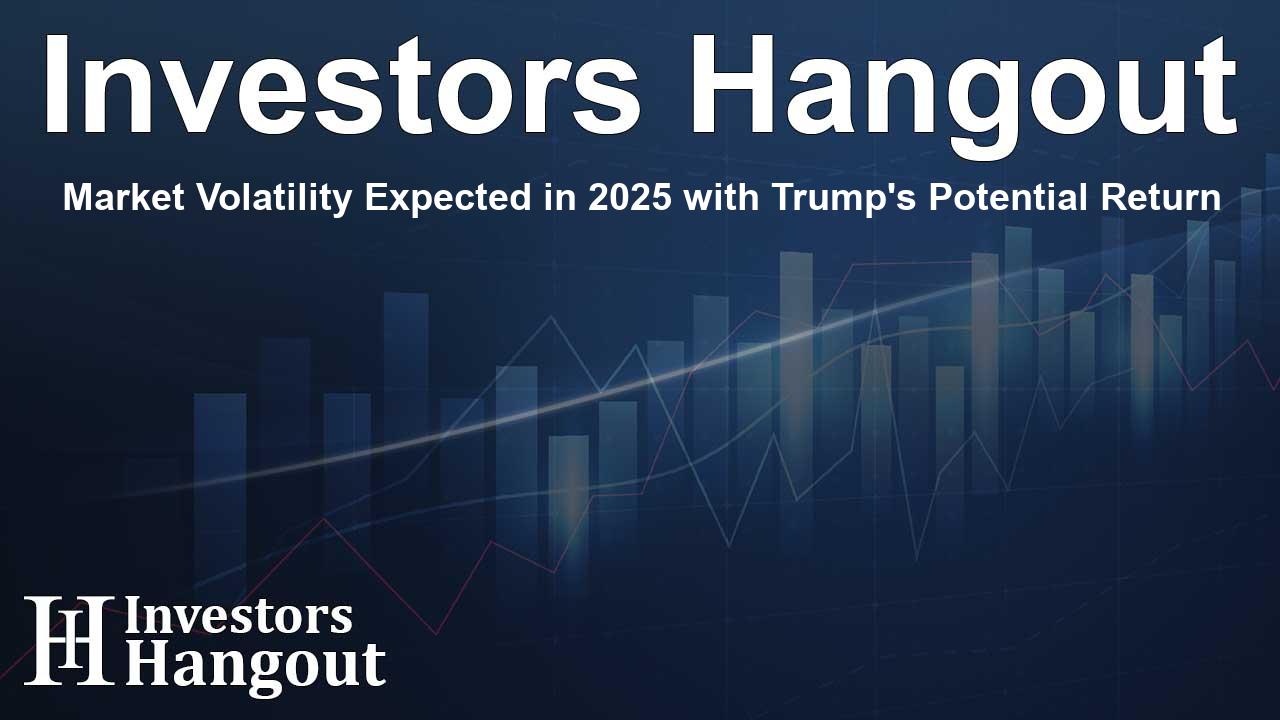Market Volatility Expected in 2025 with Trump's Potential Return

Economic Concerns Ahead of Trump's Potential Return
The prospect of Donald Trump returning to the White House has sparked discussions among financial experts about the implications for market stability in 2025. Piper Sandler describes this situation as a "recipe for volatility," reminiscent of the economic challenges faced in prior decades.
Historical Comparisons to the Early 1980s
Piper Sandler draws significant comparisons between Trump's possible presidency and Ronald Reagan's tenure in the early 1980s. Just as Reagan inherited a complex economic landscape filled with inflationary pressures, Trump will likely step into a similar scenario characterized by fiscal challenges and market uncertainties.
Fiscal Dynamics and Economic Policy
Trump's return comes after a prolonged period of stimulative fiscal and monetary policies, highlighting the complexities awaiting his administration. Federal expenditures have surged dramatically, and with persistent inflation, the bond markets are already beginning to react to this shifting landscape.
The Role of 'Bond Vigilantes'
The influence of "bond vigilantes" is evident as they drive yields higher, responding to concerns that the Federal Reserve’s recent decisions on rate cuts may have been overly ambitious. This reaction underscores the sensitive nature of the current financial environment.
Growing Inflation and Federal Spending Patterns
The firm notes that federal spending has escalated by 10.4% year-over-year, continuously fueling inflation. Unlike tariffs, which represent one-off price adjustments, uncontrolled government spending has a more persistent impact on the economy.
The discussion on tariffs is particularly critical. While tariffs may temporarily push prices higher, they are overshadowed by the more significant inflationary effects stemming from government expenditure increases.
Uncertainties in Fiscal Policy Under Trump's Leadership
Uncertainties regarding Trump’s fiscal policy add to the existing market jitters. Questions surrounding federal spending trends, the prospects of new tariffs, and the future of corporate tax rates create an air of unpredictability.
The Implications of Potential Deregulation
While deregulation and potential tax cuts under Trump could theoretically enhance productivity, there is a pressing concern that aggressive tariff strategies might diminish consumer purchasing power and ripple through various markets.
The Monetary Policy Landscape
Monetary policy represents another critical area of concern. Despite attempts to ease among central bank officials, inflation continues to show persistence, and looming geopolitical risks—ranging from U.S.-China relations to conflicts in various global regions—compound the overall uncertain economic scenario.
Market Reactions and Future Projections
Piper Sandler highlights early signs of market unease in data from manufacturing expectation indices. Both the Empire State and Philadelphia Fed indices recorded declines following the initial election enthusiasm, indicating potential concerns among manufacturers.
Expectations for GDP Growth in 2025
Despite forecasting a 2% GDP growth rate for 2025, Piper warns that the path may not be smooth. Heightened volatility is anticipated as Washington navigates a transition towards more sustainable fiscal policies, with hopes for decreased government spending, less regulation, and the continuation of low taxation.
The Road Ahead Under Trump's Leadership
In summary, as America stares down the barrel of potential policy changes under Trump’s second presidency, analysts predict a turbulent path. The evolving landscape of fiscal uncertainty will likely be a significant driver of volatility in the markets ahead.
Frequently Asked Questions
What could Trump's return mean for the economy?
Experts believe it may lead to increased market volatility due to uncertainties in fiscal policy and potential impacts on consumer spending.
How does this compare to Reagan's presidency?
Many economists draw parallels, suggesting both faced significant inflationary pressures and policy challenges upon taking office.
What are “bond vigilantes” and their influence?
Bond vigilantes are investors who can influence interest rates by selling bonds, reacting to perceived fiscal irresponsibility.
What are the concerns regarding federal spending?
Retaining high federal spending levels is believed to fuel inflation, creating an unsustainable economic environment.
How might deregulation affect productivity?
Deregulation could potentially drive productivity increases, but aggressive tariffs may counteract these benefits by hurting consumer spending.
About Investors Hangout
Investors Hangout is a leading online stock forum for financial discussion and learning, offering a wide range of free tools and resources. It draws in traders of all levels, who exchange market knowledge, investigate trading tactics, and keep an eye on industry developments in real time. Featuring financial articles, stock message boards, quotes, charts, company profiles, and live news updates. Through cooperative learning and a wealth of informational resources, it helps users from novices creating their first portfolios to experts honing their techniques. Join Investors Hangout today: https://investorshangout.com/
Disclaimer: The content of this article is solely for general informational purposes only; it does not represent legal, financial, or investment advice. Investors Hangout does not offer financial advice; the author is not a licensed financial advisor. Consult a qualified advisor before making any financial or investment decisions based on this article. The author's interpretation of publicly available data shapes the opinions presented here; as a result, they should not be taken as advice to purchase, sell, or hold any securities mentioned or any other investments. The author does not guarantee the accuracy, completeness, or timeliness of any material, providing it "as is." Information and market conditions may change; past performance is not indicative of future outcomes. If any of the material offered here is inaccurate, please contact us for corrections.